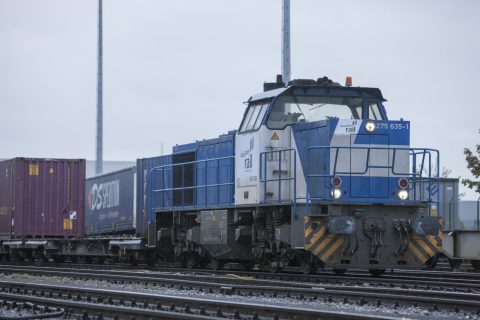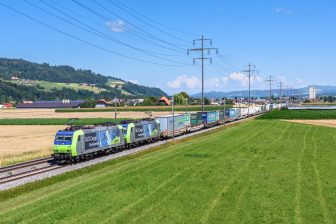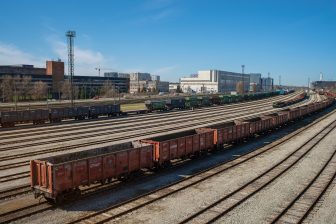
Port of Duisburg boosts rail operations with new North Sea service
Duisburg Port (Duisburger Hafen AG) has expanded its rail freight operations with the launch of a weekly container train to the North Sea port of Wilhelmshaven. It’s a significant move for the port after it saw a year-on-year fall in rail traffic volumes in 2016, despite a strengthening of its Europe-China links.
The service goes directly to the deepwater JadeWeserPort, a vital factor as it is the only German port that can handle and process the world’s largest container ships carrying 18,000 or more standard containers (TEU).
Erich Staake, Chief Executive Officer of the Duisport Group, said: “The new rail connection gives the JadeWeserPort direct access to Europe’s largest logistics hub. This is good for both Wilhelmshaven and the handling volume of the Port of Duisburg,”
Railway traffic
The Duisport Group generated record revenues of 230 million Euros in 2016, and handled 133 million tonnes of cargo in total, up from 129 million in 2015. But the railway traffic figure of 17.6 million tonnes was down on the previous year’s 19.1 million tonnes. The port said this was due to the loss of a ‘special business in the rail cargo segment’.
Looking forward, the group is keen to build on its Trans Europe-Asia rail freight links, and in line with the ‘One Belt, One Road’ Silk Road trading initiative, the port is working closely with Chinese companies and now 20 trains run between the port and various destinations in China every week.
Expand
In the coming years the port plans to significantly expand the volume of goods transported directly from China to Europe via Duisburg, building on its strong existing links with the north-western cities of Chengdu, Chongqing and Urumqi, which link the central and southern corridors of the new Silk Road network.
“We are very pleased with the growing importance of the China trains,” added Staake. “This trend will continue and lead to rising handling volumes in the Port of Duisburg, also because China has now replaced the US as Germany’s most important trading partner. In addition, China is also the world’s most important e-commerce market, which will become a major economic driver in the transport logistics sector in the future.”





